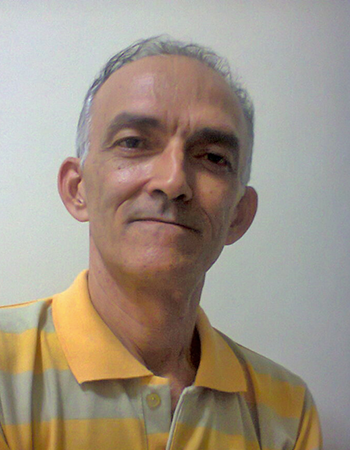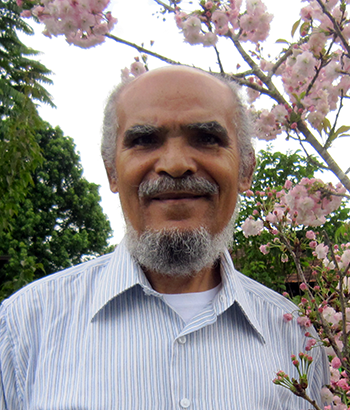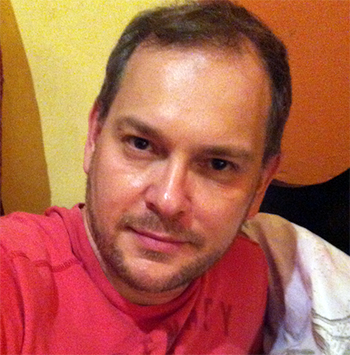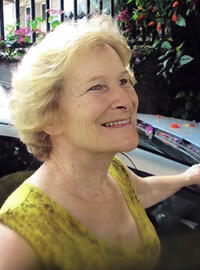The Revision of the Portuguese Translation of The Urantia Book
The Revision of the Portuguese Translation of The Urantia Book



By Susana Hüttner Palaia, São Paulo, Brasil
Editor’s Note: Luiz Dolla Bella Chagas, a native from Brazil, with the help of Susana Hüttner Palaia, translated The Urantia Book into Portuguese from 1996 to 2006. It was printed in 2007. We wish to give them tribute for their courage and tenacity, especially to Luiz as he was the chief translator. According to many readers, the style was elegant and the translation faithful to the original.
A translation, however, is a human work and is always subject to improvement. Therefore a revision team was established by Urantia Foundation six years ago. The trustees, associate trustees, and staff are grateful for the diligence, passion, and service of this team.
The revision of the Portuguese translation of The Urantia Book began in 2012 and is expected to be complete by 2021, which will make it a ten-year effort. It is very interesting and enjoyable work, but it requires great care, patience, teamwork, and commitment.
In this project, we are not retranslating the book, but we are revising and correcting it in an effort to make it “truer” to the English text while maintaining the “beauty” of the text and its comprehensibility to the average reader of Portuguese.
The procedure involves carefully analyzing the text word by word, taking care that the meaning of the English text, representing what the revelators intended, is consistently reflected in the Portuguese text, while at the same time respecting the original Portuguese translation.
We have an excellent team working on this revision, and all of its members know The Urantia Book extremely well and have volunteered to serve the revelation with their skills.
To give you an idea of the procedure that we follow:
I, Susana, function as the coordinator of the revision. This means that I begin the process by reading one of the papers and making corrections that I think are necessary and appropriate.
I then pass the paper along to my colleague Saulo, who lives in Recife, which is in the northeast part of Brazil. Saulo lived in the United States for twenty-one years, so he has a great command of the English language. He goes through the text and gives me his suggestions, which I usually accept.
After such corrections are made, the text goes to Helder, who lives in Curitiba, which is in the south of Brazil. He is an expert in the Portuguese language, and because he works for the government of Paraná, he is provided with a team of language experts called a forum universitário. He also gives me very intelligent and accurate suggestions.
Following these additional corrections, I send the text to a support group led by Sabino from São Paulo. The members of the group read the text in Portuguese and make suggestions, comparing the revisions with the original Portuguese translation.
I then read the whole paper again and make the agreed-to changes. After all 196 papers are revised, we shall read the whole book again in order to be certain that all words are consistent throughout the book.
I feel that this project is the most important task of my life. For me, a day is not complete if I cannot dedicate some time to the revision work.
The following statements were made by members of our team:
“Despite experiencing a variety of difficulties, I have always taken great pleasure in this work and feel honored to be a member of the revision team. Our pace is slow at times, but I am confident that we shall complete the revision.”
“I will remain a member of the revision team until the project is completed, and I pray to our heavenly Father for encouragement and protection.”
“It helps to remember that our ultimate purpose in this task is to glorify our Father and our brother and friend, Christ Michael of Nebadon.”
~Saulo Fraga“My challenge in contributing to this revision work is to do it carefully, remembering that ‘Jesus was never in a hurry.’”
“The work involves reading and rereading, comparing the revision with the existing Portuguese text as well as with the English text. The main problem is with the semantic meanings in both the English and Portuguese languages, which raise constant questions as to the correct terms to maintain the intent of the original English text. The contexts of the two languages are not always the same; so translation cannot always be literal. This requires constant consultation with other professionals for their opinions. I find the work to be painstaking but gratifying.”
~Helder Cherubin“Working with the Portuguese revision team makes me feel almost as if I have acquired additional senses. There seems to be a fine resonance between our minds when actively engaged in the process of dipping into the various meanings, projecting ourselves into the minds of potential readers, and sensing how such concepts could be more clearly understood.”
“We feel a great personal satisfaction of service to humanity and to Michael-Jesus, who must be aware of our loyal and unconditional commitment. Knowing these things gives us an extraordinary sense of enduring gratitude.”
~Sabino Souza Hüttner
